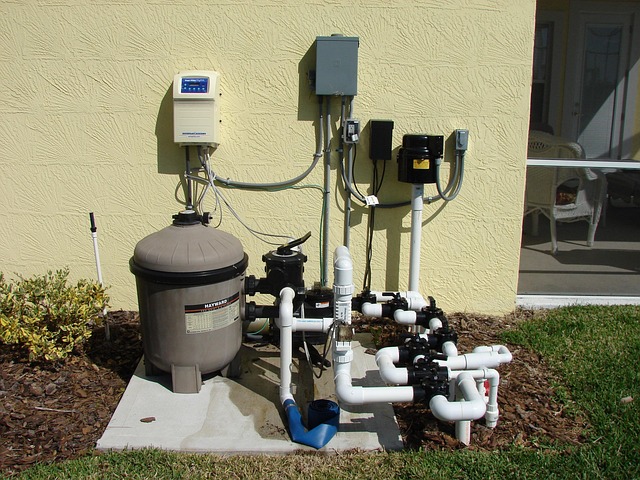Water Pumps: Reliable Solutions for Everyday Needs
Water pumps ensure a steady supply of water for homes, gardens, and businesses. Their reliable performance supports daily comfort and efficiency. By choosing the right pump, users can manage resources more effectively and maintain a consistent flow when needed most.

What Are the Key Advantages of Water Pumps for Households and Gardens?
Residential water pumps provide numerous benefits that enhance daily living and property maintenance. For households, these devices ensure consistent water pressure throughout the home, particularly in multi-story buildings or areas with low municipal water pressure. Garden enthusiasts rely on water pumps to maintain efficient irrigation systems, enabling them to water large areas quickly and effectively.
Water pumps also offer independence from municipal water systems during emergencies or in remote locations. Well pumps allow homeowners to access groundwater sources, while surface pumps can draw water from nearby streams, ponds, or storage tanks. This versatility makes water pumps valuable assets for maintaining self-sufficient water supplies.
How Do Energy Efficiency and Durability Serve as Key Features?
Modern water pumps incorporate advanced technologies that prioritize energy efficiency without compromising performance. Variable speed motors adjust power consumption based on demand, reducing electricity costs while maintaining optimal water flow. Many contemporary pumps feature energy-efficient designs that meet strict environmental standards, helping users minimize their carbon footprint.
Durability remains a crucial consideration when selecting water pumps, as these devices often operate in challenging conditions. High-quality pumps constructed with corrosion-resistant materials can withstand harsh environments and provide years of reliable service. Stainless steel and cast iron components resist rust and wear, while advanced sealing systems prevent water damage to internal components.
What Are the Practical Uses of Water Pumps in Residential and Industrial Settings?
Water pumps serve diverse applications across residential and industrial sectors. In homes, sump pumps protect basements from flooding by removing excess water during heavy rainfall or snow melt. Pressure booster pumps enhance water flow to upper floors, showers, and appliances that require adequate water pressure to function properly.
Industrial applications demand robust pumping solutions capable of handling large volumes and challenging conditions. Manufacturing facilities use water pumps for cooling systems, cleaning operations, and process water circulation. Agricultural operations depend on irrigation pumps to deliver water to crops across vast fields, while mining operations require dewatering pumps to remove groundwater from excavation sites.
How Do Pumps Contribute to Sustainable Water Management?
Water pumps play a vital role in promoting sustainable water management practices by enabling efficient water distribution and conservation. Rainwater harvesting systems rely on pumps to collect and distribute stored precipitation for irrigation and non-potable uses, reducing dependence on municipal water supplies.
Recirculation pumps in heating and cooling systems minimize water waste by continuously moving water through closed-loop systems rather than discharging it after single use. Greywater pumps allow households to reuse water from sinks, showers, and washing machines for landscape irrigation, significantly reducing overall water consumption.
| Pump Type | Provider | Key Features | Cost Estimation |
|---|---|---|---|
| Submersible Well Pump | Grundfos | Energy efficient, corrosion resistant | $800-$2,500 |
| Centrifugal Surface Pump | Wayne | Self-priming, portable design | $300-$800 |
| Sump Pump | Zoeller | Automatic operation, reliable motor | $200-$600 |
| Pressure Booster Pump | Goulds | Variable speed, quiet operation | $500-$1,500 |
Prices, rates, or cost estimates mentioned in this article are based on the latest available information but may change over time. Independent research is advised before making financial decisions.
Selecting the Right Water Pump for Your Needs
Choosing an appropriate water pump requires careful consideration of specific requirements, including flow rate, head pressure, and intended application. Flow rate determines how much water the pump can move per minute, while head pressure indicates the pump’s ability to lift water vertically or push it through horizontal distances.
Installation requirements vary significantly among different pump types. Submersible pumps require professional installation in wells or water sources, while surface pumps offer more flexibility in placement and maintenance access. Consider factors such as power source availability, maintenance requirements, and local building codes when making your selection.
Water pumps represent essential investments in property infrastructure and water management systems. Their versatility, efficiency, and reliability make them valuable tools for addressing various water-related challenges in residential, commercial, and industrial settings. By understanding the different types of water pumps available and their specific applications, property owners can make informed decisions that enhance their water security and operational efficiency for years to come.




